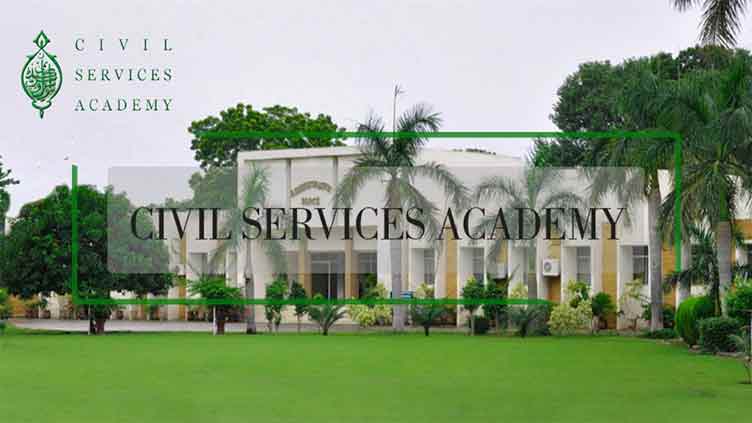
Pakistan
A veteran bureaucrat explains why CSS is becoming popular
- He says that bureaucrats are nothing more than cogs that are replaced from time to time.
- He wants people to explore other careers.
- Journalists say a career in the civil service is rightly seen as a passport to promotion
Ahad Khan
The Federal Public Service Commission (FPSC) recently announced the results for the Central Senior Services (CSS) Examination 2023.
According to the notification, out of 13,800 candidates, only 408 qualified for the prestigious examination. The pass rate was the lowest at 2.96%..
As many as 20,262 students appeared for the exam in 2022, of which 223 passed.
Although the number of candidates appearing for the “king of exams” in our region is declining, the craze for Pakistan’s highly regarded elite service continues to grow (this is backed up by statistical data from the past few years).
As I began to wonder why people in Pakistan are obsessed with CSS, whether the declining pass rate is a sign of no interest in civil services anymore, and why the pass rate is so abysmally low, I began searching for the person best suited to satisfy my curiosity.
I needed an “expert” who must have been on the ground and after some thought I decided to meet with Umer Rasool, former president of the Civil Service Academy.

Let’s ask a veteran bureaucrat
Rasool graciously accepted my request and before I began my formal questioning, I complimented him on being a “flashy” former DG. As if the use of the word “flashy” had rubbed off on any nerve, he immediately began whetting my curiosity like a river.
“People with idealism and flamboyance have no place in the system. Bureaucrats are just part of the system. They can’t change the system,” he explained.
“We are just ‘cogs in the wheel’ that change from time to time,” he said bluntly.
But why is this epidemic happening?
He began answering this question before I even asked it, almost as if he had anticipated it.
“The allure of bureaucracy comes from our colonial past, to which we are still enslaved,” he said.
“Our forefathers witnessed the rituals during their interactions with the Deputy Commissioner and were subconsciously fooled by the pomp and circumstance. That was their eureka moment when they hoped that one day their sons and daughters would become powerful officials like these ‘Gola’,” he said, digging into history.
He said the pursuit of perks and privileges seemed to be the only motivation for joining CSS. And while few students may have had a genuine desire to serve the public at first, it didn’t take long for their behavior to change through the time-honored pattern of training compassionate people. He described this change in behavior as a “splitting of the soul.”
On my second question about the decline in the number of people taking competitive exams, he said this was only a “short-term phenomenon.” It could be because the sudden political turmoil over the past two years has led many to seek fortune abroad, he said.
He said that those left in the country would have to climb the ladder and there would soon be a large number of people competing for success in the civil service.
A veteran bureaucrat, Rasool was critical of the bloated bureaucracy and advised the youth not to dream of becoming a “babu”.
A journalist’s perspective
It also gave me the opportunity to gain a different perspective as a journalist with decades of experience in senior editorial roles.
He opined on these very aspects of competitive examinations:
“In my humble opinion, most students try their luck in competitive exams for typical reasons like parental/family wishes and peer pressure.
“Secondly, CSS and PMS offer the fastest route to a career with many incentives that other professions do not guarantee, so in a way it is natural for an elite group to covet the perks they offer.
“It is not without reason that most candidates choose the elite diplomatic service, Pakistan administrative service and police,” he said.
“I don’t think many people care about doing their duty or being patriotic. They care about pursuing a privileged career path first and foremost. And that’s how it should be!” said the journalist, who asked not to be named.
Some people may just take the test for fun, he said. “I don’t know how many students have that mindset.”
“Especially in rural areas, the virtues of being a ‘babu’ or ‘afsar’ are drilled into the minds of children. This may be due to the poverty faced by people in remote areas and their dreams of a life in the cities.”
Regarding the drop in the number of candidates taking exams over the past year and the low pass rate, he said: “Unfortunately, this reflects the fault of the CSS examination system and, above all, the authorities.”
“Reforms are something that people in positions of authority hate, and we hardly hear about reforms in competitive exams.
“On the one hand, the government says we need more talent to move the country towards progress, but on the other hand, it seems to have little interest in filling seats,” he wonders.
He firmly believes that CSS and other competitive exams are rightly considered the preferred option for many. “Unemployment and fewer opportunities are also among the reasons why people aspire for a career in civil services,” he asserted.
“Despite the drawbacks, I would nevertheless encourage my son or daughter or anyone to choose this path if they have a good educational background and no other option is available,” he suggested.
“It is and should be the preferred option,” he waxed almost lyrical about the much-needed service.
In his view, CSS is the only avenue through which ordinary people can participate in a reasonably decent system.
I will share my thoughts on this subject another day. Until then, enjoy these “Expert Excerpts.”
Loading my comments…
‘ ; var i = Math.floor(r_text.length * Math.random()); document.write(r_text[i]);

